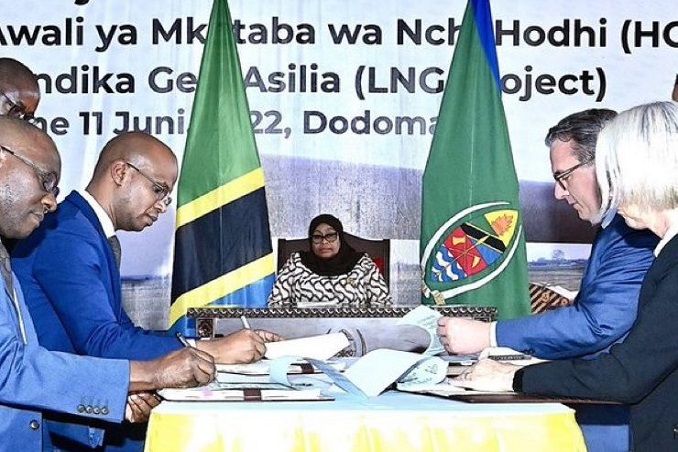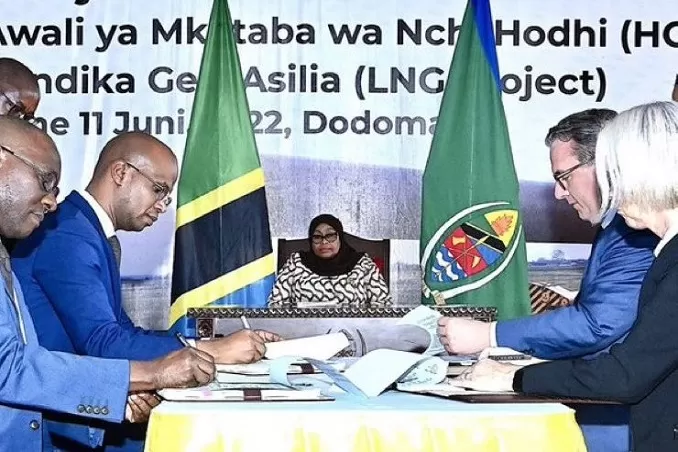

tanzania has signed a natural gas agreement with equinor and shell
Tanzania has signed a framework deal with Equinor of Norway and Shell of the United Kingdom, bringing them one step closer to breaking ground on a $30 billion liquefied natural gas export project (LNG). The agreement that was made public on Saturday calls for a final investment decision to be made by 2025 and for a liquefied natural gas plant to start running in the town of Lindi on Tanzania’s southern coast by 2029 or 2030.
It is a big step forward in Tanzania’s efforts to begin the export of a portion of the massive gas reserves off its coast, which are estimated to be worth over 57 trillion cubic feet (1,630 billion cubic metres). During the signing event in Dodoma, Energy Minister January Makamba declared, “We have never achieved this degree of natural gas development in the history of our country.” Makamba stated, “This initiative will have a huge impact on our economy.” “Tanzania’s geographic location makes it simple to transfer natural gas to other countries, particularly Asian countries seeking new energy supplies.”
The tentative agreement was praised by Tanzanian President Samia Suluhu Hassan, who was also in attendance. “We’ve made progress on the LNG project,” she added, “but there’s still a lot of work to be done before we can talk about it and make it competitive.” Plans for the LNG project had been dormant for years under her predecessor, John Magufuli, but she resurrected them after becoming president last year. Unni Fjaer, Equinor’s Tanzania country manager, said the agreement has been in the works for a long time. “We had a lot of pauses, but we remained engaged in negotiations because of the government’s resolve,” she added. “We believe Tanzanian gas presents a great opportunity.”
Equinor is exploring a block 100 kilometers (60 miles) off the coast of Lindi with American firm ExxonMobil, where it claims to have discovered 20 trillion cubic feet (566 billion cubic metres) of natural gas. Shell claims to have discovered 16 trillion cubic feet (453 billion cubic metres) of gas in two further offshore blocks in the same area, in collaboration with Ophir Energy and Pavilion Energy. During the coronavirus pandemic, Tanzania’s economy took a hit as travel restrictions wreaked havoc on the country’s tourism industry, which is a major revenue generator.
Disaster teams in KwaZulu-Natal stand ready to respond to persistent rainfall while drivers should approach roads with care. According to…
Starlink the satellite internet company by Elon Musk is growing fast in Africa. It now works in more than 20…
Chinese production companies directly offer their luxury products at wholesale rates online because they were created for luxury retailers. Social…
Cricket South Africa reveals a new ODI squad for 2023 competitions as Proteas women's team and presents fresh players alongside…
African content is getting more attention around the world. While Nigerian films (Nollywood) are already well-known, East Africa—especially Kenya—is starting…
During seven intensive training days, the South Sudan Football Association educated its referees in Rumbek. The organization (SSFA) trained 30…
This website uses cookies.